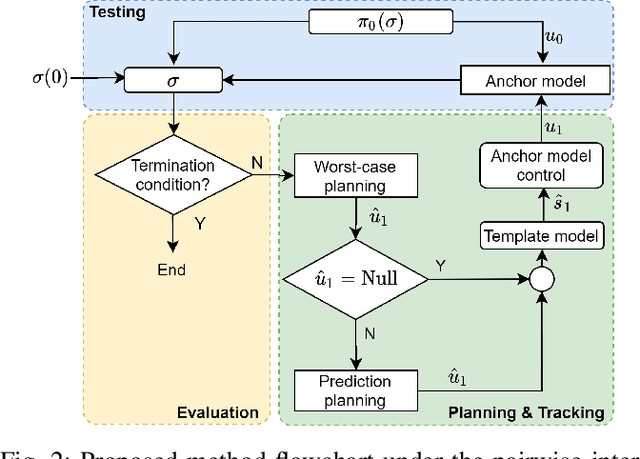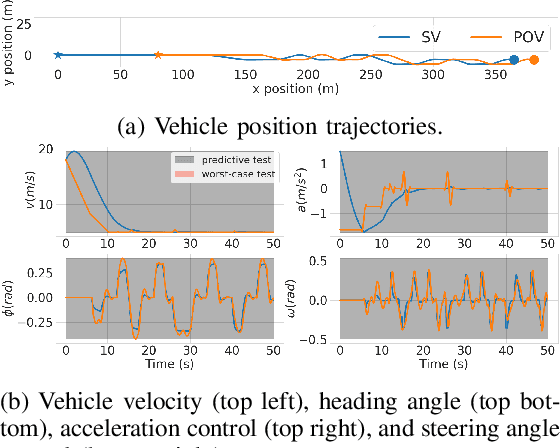A Modeled Approach for Online Adversarial Test of Operational Vehicle Safety
Paper and Code
Sep 28, 2020



The scenario-based testing of operational vehicle safety presents a set of principal other vehicle (POV) trajectories that seek to force the subject vehicle (SV) into a certain safety-critical situation. Current scenarios are mostly (i) statistics-driven: inspired by human driver crash data, (ii) deterministic: POV trajectories are pre-determined and are independent of SV responses, and (iii) overly simplified: defined over a finite set of actions performed at the abstracted motion planning level. Such scenario-based testing (i) lacks severity guarantees, (ii) is easy for SV to game the test with intelligent driving policies, and (iii) is inefficient in producing safety-critical instances with limited and expensive testing effort. In this paper, the authors propose a model-driven online feedback control policy for multiple POVs which propagates efficient adversarial trajectories while respecting traffic rules and other concerns formulated as an admissible state-action space. The proposed approach is formulated in an anchor-template hierarchy structure, with the template model planning inducing a theoretical SV capturing guarantee under standard assumptions. The planned adversarial trajectory is then tracked by a lower-level controller applied to the full-system or the anchor model. The effectiveness of the proposed methodology is illustrated through various simulated examples with the SV controlled by either parameterized self-driving policies or human drivers.
 Add to Chrome
Add to Chrome Add to Firefox
Add to Firefox Add to Edge
Add to Edge